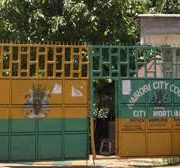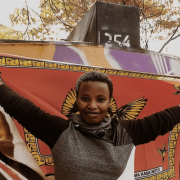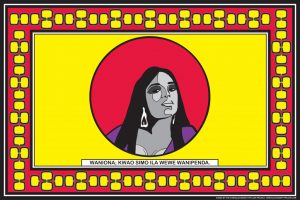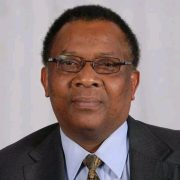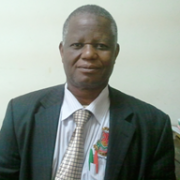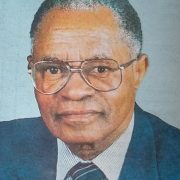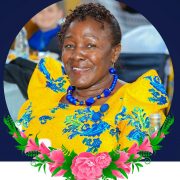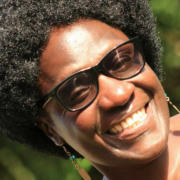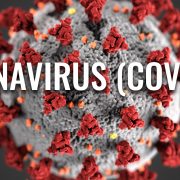SUNRISE: 1956
SUNSET: 2020
Eulogy…..
We are all here to celebrate a remarkable man who accomplished a great deal in his lifetime.
First and foremost, Nzamba was a man who loved the law and all it encompassed.
He distinguished himself as a legal luminary, and a constitutional law stalwart who was a key pillar in the country’s constitutional journey.
He was a great humanist who held a strong sense of human rights, commitment to the rule of law and promotion of access to justice for all. He was a father, brother, uncle, cousin, dear friend and a benevolent mentor to many.
He served the Bench and the Bar effectively, enthusiastically and with distinction and dedicated himself to building our nation and her institutions. Of the Aoni Clan, Nzamba was son of Kitonga, son of Muthangya and son of Kavuu. Born on 10th April, 1956 in Mombasa, he was the 5th of twelve siblings.
His father Hon. Chief James Kitonga and mother, the Late Martha Mwathi Kitonga named him Nzamba, which means ‘shujaa” in Kiswahili.
He lived up to that name throughout his life. There was nothing he could not accomplish if he put his mind, strength and force to it.
His academic journey began at Mombasa at Buxton Primary School. After eight years education, he moved on to Kitui Seminary for his secondary education. It was at this time, he grounded his faith in the Catholic religion.
Having passed well he proceeded to Kangaru High School for A level. Two years later he joined the University of Nairobi. At the time, Nzamba’s father was a Member of Parliament. However, as Professor Kivutha Kibwana recalls, Nzamba was very low key.
He never talked about himself or family. In fact, his father was surprised on visiting the university to find out his son was one of the student union leaders. It was a controversial position then.
In his career spanning over four decades, Nzamba achieved many firsts in his legal profession. After a two-year stint at K. Mwaura & Company in Nairobi and Ndeto Mututo Advocates in Kitui, he established his own legal practice in 1981 at twenty-five years of age. Two years later, 1983, he expanded his foot print into Mombasa and a further six years later he founded the head office in Nairobi.
He grew his firm with tenacity, hard work and faith. His areas of practice include conveyance, corporate, property and commercial law, trade union, labour, local government, human rights, insurance and constitutional law.
He undertook litigation in all areas of civil, criminal and commercial law. In 2002, Nzamba became a Member of the Chartered Institute of Arbitrators.
The following year (2003) he was appointed Senior Counsel of the Republic of Kenya and obtained an International Criminal Law Practice conferment from The Hague, Netherlands. He was inducted into The Roll of Honor of Advocates by the Law Society of Kenya in 2004.
Nzamba served as a council member of the International Bar Association and a council member of the Law Society of Kenya from 1994 to 1999 holding the post of chairman from 1997 to 1999.
He held the Vice Presidency of East Africa Law Society from 1998 – 2000 and the Presidency from 2000 – 2003. He was also a council Member of the N.G.O. Statutory Disciplinary Tribunal and Pan African Lawyers Union.
He served as a council member on the council of Legal Education in Kenya and the Legal Sector Reform Committee / Task Force of Kenya and was the Chairman of the Kenya State Corporations Appeal Tribunal.
In 2001, Nzamba Kitonga convened the East African Legal Conference on Inland Waters, Marine and Shipping Laws.
He was the Chief de Mission of the Investigative Task Force on Human Rights, Electoral Violence and Discontent in Zanzibar from 2001 to 2002. He was also the Chief de Mission of The East African N.G.O. delegation to the United Nations World Conference on Racism held in Durban, South Africa in 2002.
He was the Vice – Chairman of the Commission of Inquiry into the Goldenberg Affair from 2003 to 2005.
He has served as an Alternate Chairman of the Advocates Disciplinary Committee. In 2008, he was the legal counsel to the Parliamentary Department Committee on Finance, Planning and Trade Investigating into the Grand Regency Saga. In the same year and the following he served as Chairman/Convenor of The law Society of Kenya Committee on Constitutional Review.
From 2009 – 2010 Nzamba served as the President of the COMESA Court of Justice. From 2009 – 2010, Nzamba served as The Chairman of the Committee of Experts on Constitutional Review Process culminating in the promulgation of the Kenya’s New Constitution of 27th August 2010.
At the time of his demise, he was the current United Nations monitor to The Genocide trials in Rwanda. He was an L.L.M student on International Criminal Law at Tanzania Open University. He was also on the International Criminal Court Counsel list.
In his childhood he was popularly known as ‘koko’ amongst his peers and family. This was a nickname given to him by his father to portray a rooster’s way of life of crowing at the break of dawn. The name Nzamba means a cockerel hence a symbol of bravery, prudence, pride and strength.
In life, there is a purpose for everyone you meet. In every chapter of Nzamba’s life, he was supported, loved and cared for. He is survived by four beautiful children, James Ivia Kitonga, Mary Mwathi Kitonga, Kavengi Kitonga and Eve Mukami Kitonga and his partner Carol Mbuvi. His children describe him as very disciplined and humble. A gifted orator, he had a witty sense of humor. Everyone who knows him can attest to his intellect. Sharing his vast experience with younger lawyers was very important to him. His daughter Mwathi can attest to this. Often, she meets advocates who have been mentored by him and who hold him in high regard.
His children further describe him as a disciplined and hard worker even up to his untimely demise.
He religiously woke up at 5.30 a.m every day and left the house by 6.30 a.m to arrive at his office at 7.00 a.m a routine he has practiced all his life.
Nzamba had a lot of integrity especially concerning money. He was always aware of his commitments and pledges and never wavered on any of them. If he promised something, his word was as good as done.
We offer humble gratitude to God to have witnessed his life. Above all, we were blessed to have enjoyed his spirit. He leaves behind a legacy that benefits not only his children but all Kenyans.
Nzamba Kitonga, may you rest in peace.
Awards
2003 – Appointed Senior Counsel of the Republic of Kenya.
2004 – Induction into Roll of Honour of Advocates by the Law Society of Kenya.
2005 – Distinguished Service Award / Honorary President East African Law Society.
2006 – Awarded Moran of the Order of the Burning Spear (M.B.S.).
2010 – Awarded Elder of the Burning Spear (E.B.S.) for distinguished service to the Nation.
2010 – Declared Jurist of the Year by the International Commission of Jurists – Kenya Chapter.
Click the link below for Nzamba Kitonga Funeral Program
In Loving Memory of Nzamba Kitonga

